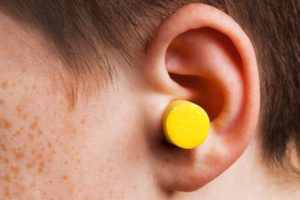 An estimated 15 percent of American adults report difficulty hearing, which is quickly becoming a problem across all age groups. Unfortunately, many of us overlook hearing problems, not only putting our hearing at risk, but our overall health, too.
An estimated 15 percent of American adults report difficulty hearing, which is quickly becoming a problem across all age groups. Unfortunately, many of us overlook hearing problems, not only putting our hearing at risk, but our overall health, too.
When we have difficulty hearing, we put our safety at risk, we compromise our independence, and our emotional wellbeing begins to suffer as well. Hearing allows us to feel connected to others, so if you can’t sustain a conversation, you could be missing out on some important and valuable social interaction, too.
Advertisement
Hearing loss has been tied to social isolation, depression, even dementia and Alzheimer’s disease. As you can see, it is a much larger problem that extends beyond just being able to hear. When we can’t hear, we gradually start distancing from other people. We stop going to functions, avoid public spaces, and ultimately choose to stay at home all alone. This can take a negative toll on our mental, emotional, and overall health.
Even if you’ve only begun to notice a slight difference in your ability to hear, you should see your doctor right away, as once your hearing is gone, it’s gone forever. The good news is, if caught early enough, you can start taking necessary measures to avoid losing your hearing completely – you may even be able to improve it! Furthermore, it may turn out that your hearing loss is actually a sign and symptom of another condition, so you shouldn’t hesitate to have it checked out.
Tips to improve your hearing
Here are a few tips you can try now in order to improve your hearing so you’re not left in the dark.
- Avoid loud noises, especially in small areas or through earbuds.
- Limit exposure to loud noises – the longer you endure such sounds, the higher the risk for hearing loss.
- Wear protection gear, like ear plugs or noise-cancelling headphones, and if you work in a noisy setting like construction, ensure you always wear protective equipment.
- Ensure the volume on your TV, radio, or any other device is set to a comfortable level – especially earbuds, as they are placed directly into the ears.
- Avoid sticking items like cotton swabs into your ears – they can cause damage to your eardrums.
Have your ears checked regularly as you would go to see your dentist, eye doctor, or general physician.
Signs of hearing loss
Advertisement
Not sure if you are on the brink of hearing loss? Well, here are some signs and symptoms to look out for which may be early indications that your hearing is changing.
You have difficulty following conversations, especially in noisier environments or over the phone.
- You ask others to repeat themselves or you often misinterpret what they had said.
- You are turning the volume up on your TV or radio.
- You feel tired or irritated after long conversations.
- You appear distracted in social situations.
If you have noticed these signs, you may want to have your hearing checked before you experience complete hearing loss. Hearing loss devices have come a long way and there are many more options available to help restore your hearing.
